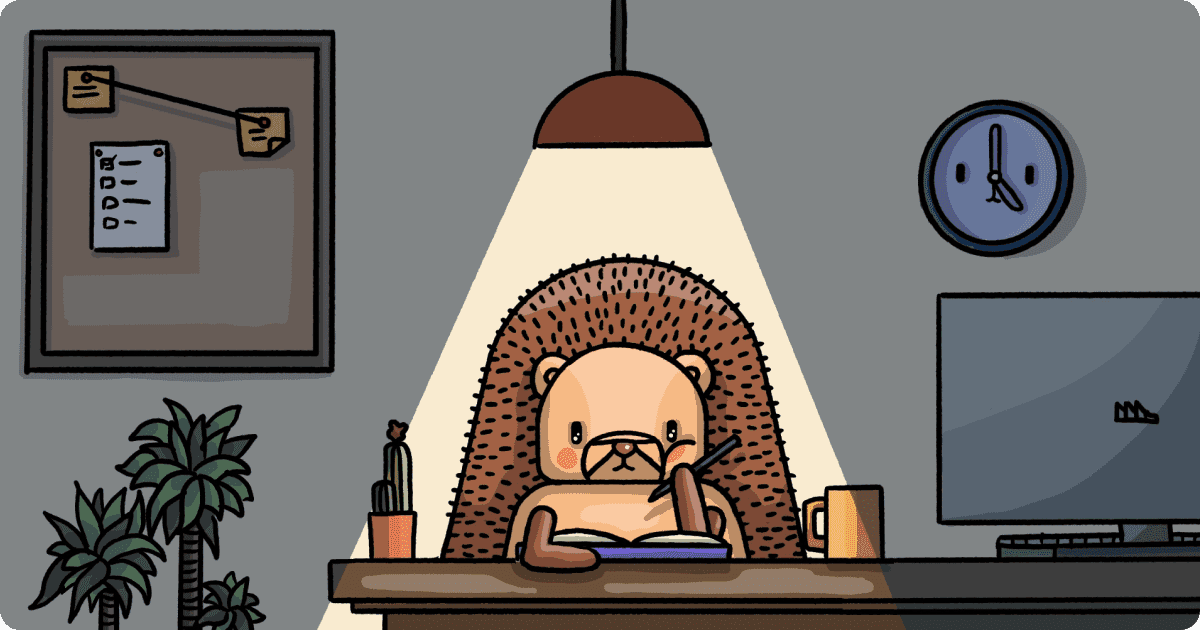Learnings from Elon
Jan 20, 2024

On this page
- The power (or not) of artificial deadlines and urgency
- Product drives marketing and sales
- At scale, be in the details but not the day to day running
- Being erratic is good or bad
- Learn to enjoy the taste of your own blood
- Take fun seriously
- Harder missions are easier to achieve
- No matter how wild the mission, you need a real business to get there
Love or loathe him, Elon is one of most opinionated business leaders out there. That makes him worth studying as a founder, no matter what politics he gets into. I read Walter Isaacson's biography of him over Christmas. These are some lessons that we can take from his work.
The power (or not) of artificial deadlines and urgency
There are many examples of Elon setting a ridiculous seeming artificial deadline to create urgency. In 2016 with the Tesla Model 3, for example, Elon announced he was advancing Tesla's 500,000 unit plan to 2018, two years earlier than previously planned.
This clearly works for him – look at all the progress he has made. Getting to space, totally disrupting the automative industry worldwide, and so on!
There are other companies in our space doing the same. Supabase, for example, is known for its launch weeks.
At PostHog, artificial deadlines have not worked. We even tried doing a launch week once. We’ve considered why this is the case quite carefully. We think it comes down to a particularly intrinsically motivated team. Let me explain.
Part of our strategy is to ship all the tools developers need. This means we’ve a lot of surface area - too much for one person or team to hold it all in their heads. We need to decentralize control of our products to our small teams. This means each team decide what to build proactively. So we hire proactive, intrinsically motivated people.
Second, we think more experienced people are usually better at working proactively, since they get stuck less often and need less help. These people generally do not want to work until midnight on a weekend as they usually, but not always, have families. We’ve gone so far as to have an all remote environment, which is particularly well suited to people like this (amongst many other benefits, such as long, uninterrupted blocks of time to just build cool stuff).
Third, we grow by shipping, not by hiring salespeople. This means we need to optimize for long term shipping speed. If we set artificial feature-focused deadlines, we’ll speed up in the short run, but will incur technical debt and hurt our long term growth.
To broaden this lesson, to find startup success, I think you need to either be all in on working 28 hours a day, 9 days a week with a bunch of 20-year-olds, or you should focus on a smaller, more experienced team. The former suits artificial deadlines, the latter sees them as a bad thing.
Product drives marketing and sales
Elon has a very product-first approach – many of his companies put something so cool on the internet that it generates an extreme amount of word of mouth growth. Just look at the robot doing the laundry!
We grow primarily through word of mouth. Long term, we think this is a winning strategy as it’s more efficient than a sales led model – you can reinvest everything back into the product, to build a bigger and bigger long term advantage.
You can see this from the mind-blowing specification of Teslas – they are incredibly powerful, superb value and very cool. There’s really no major compromise. Hence they rocketed in popularity.
At scale, be in the details but not the day to day running
Elon attends very detailed design review sessions for many of the major projects he cares about. The book explains how he is regularly attending sessions to design a robot’s hands, for example. However, it goes on to describe him having 30+ direct reports. That is simply too many to be meaningful for daily progress.
Tim and I are trying to work like this more and more – we aim to go deep on the projects we can help out, and “build the org” to cover the daily execution. Charles, in our exec team, makes sure our ops, marketing and customer success teams all function smoothly (each has a leader that reports to him), and we’re starting to do the same in engineering. Giving away some responsibility means you can add more value to the specific things you are uniquely good at, or which you love.
Being erratic is good or bad
Elon has had a string of weird stuff on social media. Whilst this probably brings more awareness and a strange kind of marketing benefit, we think it’s a symptom of a very top down culture where things change based on the leader’s mood.
We do not think this is a strength - perhaps it works in his companies because it creates a fear element, and more urgency as a result.
At PostHog, as mentioned, we’re more intrinsically motivated so ruling by fear would be harmful to performance.
Whilst Tim and I technically are the CTO and CEO respectively, we more or less share the CEO role. We’ve been very effective like this. I think it’s because we’re a product-led company, so what we ship has a very strong impact on marketing and sales (see “Product drives marketing and sales” above), so keeping a tight connection between these varied teams really matters.
The key to making a split like this work is happily spending a lot of time together. This (and being ok sometimes missing out on decisions) is the only way to be decisive when two of you are paired like this. We talk a lot, several hours a week, minimum. This can feel inefficient, but the reality is we need to optimize for organizational effectiveness, not our own schedules.
Learn to enjoy the taste of your own blood
Clickbait subtitle. You got me. Elon gives very direct feedback and makes painful decisions rapidly and doesn’t dwell on any of this stuff. For example, he went through a very public process to buy Twitter, then laid off 80% of the workforce.
We describe PostHog as a team for this reason. We have performance managed – letting people go decisively – throughout our time, and it has been one of the most important things we’ve ever done.
We do this because we’re optimizing for our strongest performers, who want to work in an environment where everyone is shipping their best work. As soon as we make it ok not to push hard, everyone will feel it and eventually quit or reduce their own input.
We try to balance this by being as kind as possible for people who depart under these circumstances - we pay four months’ severance once someone has been here more than a couple of months. Beyond pay, we talk directly and honesty to people - we avoid doing PIP (Performance Improvement Program) type processes as we think they are dehumanizing on both sides and cause more legal cases than they solve.
Take fun seriously
There’s very little written in startup lore about the importance of having fun. Elon seems to get a clear kick of out what he does.
We often make decisions at PostHog based on what will be the most entertaining. This can lead to remarkable things happening with our website, marketing, customer success and product. The reason we do this is that we have a lot of products to build which will take a long time. We need to consider PostHog a marathon, and fun keeps people’s spirits up.
For example, we stopped focusing on making money with our self-hosted product - it was a worse business model, but (frankly) debugging other people's infrastructure via Slack wasn't much fun.
Harder missions are easier to achieve
Elon’s companies are wildly ambitious. To make humans a multi-planetary species, for example.
In the early days of PostHog, we were a self-hostable version of product analytics. That was very pragmatic - it filled a clear market need, but it wasn’t world changing.
As we got bigger, we created a more inspiring mission, alongside a slightly outrageous strategy.
We help engineers build better products, and the first way we do this is by giving them all the products they need to do this.
Yes, our strategy is to build a ton of potential products. We've built 8 already, and have a list of 30 more. It may end up being hundreds.
As we got more direct with this strategy - putting it everywhere on the website, in our job ads, and in our all hands, it became self-fulfilling. Engineers spotted how challenging it looks to do this, and this draws the very best people in. We now get hundreds or even thousands of applicants for every job role, and the product itself is so impressive that our main way of growing is word of mouth.
No matter how wild the mission, you need a real business to get there
Take the example of SpaceX. It has a very futuristic vision, one Elon may not live to really see it, but their heads are firmly out of the clouds. SpaceX created a mission and then figured out a business model – shipping things into space for money – that could fuel the mission.
At PostHog, we're disciplined with each product we ship - we care about performance, margins, and revenue for each one.
Many venture capitalists will tell you to hire like crazy when you have product-market fit. We have product-market fit, but we don’t do this at all. We take pride in our individual products being real businesses - potentially profitable, with revenue and with sane margins.
